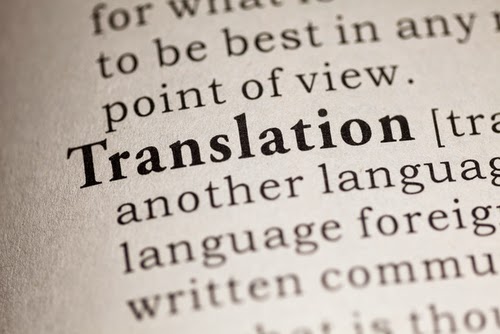One of the most famous aphorism
about translation is:
”Translation is like a women: if she is faithful, she is not beautiful
and if she is beautiful, she is not faithul” (Voltaire)
 |
| Source: Google Images |
But what is the definition of translation?
According to the Oxfrod dictionary, translation is the process of
translating words or text from one language into another but what is the
complete definition of this word? Nowadays, we can say that the translation is
a science. Newmark who was an English professor of translation perceived
translation as a science which includes the knowledge and the scientific
methods. However, in the late 70s a Translation Studies were born as a new
academic discipline. Many academics reflected about the creation of an adequate
definition of translation. Indeed, the art of translation is as old as
literature. The works of Homer were translated by philosophers in ancient times.
However, the real discussion about the theory and the problems related to the
translation was born when Nida began translating the Bible. In 1943 Nida
completed a doctorate in linguistics and he was hired by the American Bible
Society. In 1949 he founded The Bible Translator when he was writing about the
theory and practice of Bible translation. In the late 60s Nida had published Toward a Science of Translating and The Theory and Practice of Translation.
In two books he had introduced new concepts of dynamic equivalence theory. His definition
of translation is very interesting. Nida had stated: translation consists of
reproducing in the receprot language the closest natural equivalence of the
source language message, first in terms of meaning and secondly in terms of
style. In other words, the translator’s main attention should be focused on the
accurate semantic transference and also on the appropriate syntax and diction.
Today there are many theories of translation which should help to solve the
problems of the translators because global communication dominates on the world.
Translation seems to play a key role in exchanging information between
languages and countries.